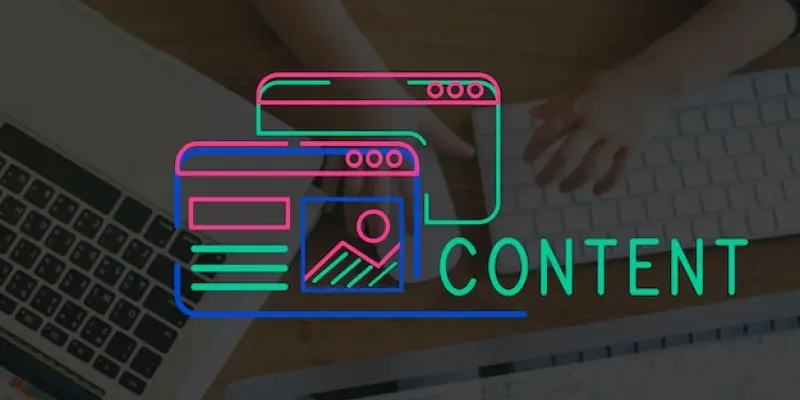In the rapidly evolving landscape of artificial intelligence, the integration of generative AI tools into established business workflows presents both significant opportunities and challenges. AI’s potential to revolutionize content creation is undeniable, yet the practical implementation of these tools often encounters hurdles related to technology integration and resource availability. This is where Model Context Protocols (MCP) come into play. Introduced by Anthropic, an innovative company recognized for its AI advancements, MCP is an open-source standard designed to bridge the gap between AI models and external systems. Its adoption by industry leaders such as OpenAI and Google underscores its significance in navigating the complexities of AI-influenced content creation.
Bridging the Gap with Model Context Protocols
Enhancing AI Capabilities with Contextual Integration
Model Context Protocols have been crafted to address the limitations of traditional AI tools by enabling seamless interaction between these tools and specific organizational data. AI models historically struggled with integrating nuanced information such as proprietary company data, brand specifics, and regional regulations, which are crucial for producing precise and compliant content. MCPs solve this issue by serving as conduits, allowing AI to access and process company-specific information in real-time. This ability ensures that AI-generated content aligns closely with brand guidelines and legal requirements, offering a level of precision that generic AI solutions could never achieve.
MCP servers add an additional dimension to this by facilitating dynamic and scalable connections between AI and various systems like Content Management Systems (CMS), Digital Asset Management (DAM), and Customer Data Platforms (CDP). These connections empower AI tools to produce personalized content on-the-fly, tailored to unique brand and regional prerequisites. This capability is particularly valuable for businesses operating across multiple geographies, where adapting content to fit local cultural and regulatory environments is paramount. Additionally, the structured framework of MCPs supports improved governance and secure data handling practices, further enhancing the reliability and trustworthiness of AI-generated content.
Real-World Applications and Industry Adoption
The practical integration of MCPs can be observed through their adoption by forward-thinking companies such as GitHub and Zapier, which leverage these protocols to streamline content operations. By enabling efficient access to business-critical data through AI tools like Claude, these companies have set a benchmark in hybrid AI-human workflows. Such workflows empower content teams to refine and deploy strategies with unprecedented efficiency. Importantly, the application of MCPs helps mitigate common AI challenges, such as response hallucinations, ensuring more accurate and contextually aware outputs. This results in more consistent brand messaging across diverse channels and touchpoints. The current trend toward personalized customer experiences is further propelled by MCP integration, offering marketers the ability to maintain control and customization in AI responses. By integrating organizational context within AI systems, MCPs reduce the heavy dependency on vast training datasets, allowing content teams to generate personalized outputs directly informed by internal knowledge and dynamics. This capability not only optimizes existing workflows but also sets the stage for future innovations in content creation, focusing on scaling personalization and compliance.
Empowering Content Teams with Customized AI
Increasing Efficiency in Content Production
The strategic role of MCPs in enhancing AI’s content generation capabilities centers on their ability to infuse AI outputs with organizational context and specificity. By doing so, MCPs enable AI tools to bridge the gap between generic data processing and bespoke content creation, effectively scaling personalized content production. This integration reduces the manual interventions that typically slow down content workflows, providing content teams with an efficient means to achieve quality and consistency.
This streamlining effect becomes particularly significant in scenarios where content must be generated at scale without compromising on brand integrity. By grounding AI responses in accurate company-specific context, MCPs ensure that each piece of content not only meets brand standards but also resonates with target audiences. The outcome is a more coherent and effective content strategy, where every generated piece aligns with overarching business goals. Furthermore, the synergistic interaction between human creativity and AI precision facilitated through MCPs fosters an environment ripe for innovation, driving forward new concepts and approaches in content creation.
Fostering Collaborative Content Development
One of the most important advantages of MCPs is their potential to foster collaborative content development initiatives where human expertise and AI capabilities converge in meaningful ways. By underpinning AI content creation with contextual relevance, MCPs enable teams to leverage AI as a valuable collaborator rather than an isolated tool. This dynamic facilitates a setting where human input and AI capabilities can be harmonized for improved outcomes.
MCP-driven workflows present unique opportunities for content teams to engage with AI models in iterative and adaptive processes. This collaborative approach allows for real-time refinement and enhancement of content, producing outputs that are not only more aligned with brand strategy but also resonate strongly with intended audiences. The knowledge transfer and synergy between AI systems and human operators pave the way for a reimagining of content creation processes, where responsiveness and quality are key hallmarks. As businesses adapt to increasingly dynamic market environments, the ongoing development and application of MCP technologies will likely play a central role in defining the future of content strategies.
Paving the Way Forward
In today’s fast-paced world of artificial intelligence, seamlessly integrating generative AI tools into established business processes presents tremendous opportunities alongside significant challenges. AI’s transformative capabilities in content creation are clear, yet implementing these tools can encounter obstacles like integrating technology and resource limitations. Enter Model Context Protocols (MCP), a solution developed by Anthropic, a pioneering company in AI technology. MCP is an open-source standard crafted to connect AI models with external systems more effectively. Its significance is highlighted by its adoption by major industry players like OpenAI and Google, which speaks to its impact on overcoming the hurdles associated with AI-driven content creation. This protocol provides a framework for efficiently incorporating AI into dynamic workflows, aiding businesses in harnessing the full potential of AI, thus transforming how content is generated and managed in various sectors.

